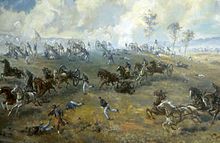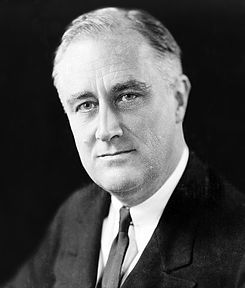“Punting the Pundits” is an Open Thread. It is a selection of editorials and opinions from around the news medium and the internet blogs. The intent is to provide a forum for your reactions and opinions, not just to the opinions presented, but to what ever you find important.
Thanks to ek hornbeck, click on the link and you can access all the past “Punting the Pundits”.
Follow us on Twitter @StarsHollowGzt
Paul Krugman: The Fiscal Fizzle
An Imaginary Budget and Debt Crisis
For much of the past five years readers of the political and economic news were left in little doubt that budget deficits and rising debt were the most important issue facing America. Serious people constantly issued dire warnings that the United States risked turning into another Greece any day now. President Obama appointed a special, bipartisan commission to propose solutions to the alleged fiscal crisis, and spent much of his first term trying to negotiate a Grand Bargain on the budget with Republicans.
That bargain never happened, because Republicans refused to consider any deal that raised taxes. Nonetheless, debt and deficits have faded from the news. And there’s a good reason for that disappearing act: The whole thing turns out to have been a false alarm.
I’m not sure whether most readers realize just how thoroughly the great fiscal panic has fizzled – and the deficit scolds are, of course, still scolding. They’re even trying to spin the latest long-term projections from the Congressional Budget Office – which are distinctly non-alarming – as somehow a confirmation of their earlier scare tactics. So this seems like a good time to offer an update on the debt disaster that wasn’t.
Leo W. Gerard: Shiftless Corporations Renounce America
Early last week, the drug firm Mylan stomped on the Stars and Stripes as it ditched America for the Netherlands. Then, on Friday, the drug company AbbVie similarly renounced America. For 30 pieces of silver, it will become Irish.
Medical device maker Medtronic deserted America for Ireland last month. The pharmacy chain Walgreens recently announced it may be next. It plans to dump the land of the free for the bows and scrapes of royal subjects.
Walgreens is willing to prostrate itself before Queen Elizabeth because the British corporate tax rate is lower. Anything for money, right AbbVie? These firms will still park their assets and staff and sales in America. They just won’t pay taxes on foreign income to the country that nurtured them, protected them from patent violators and unfair competitors, and provided them with educated workers, federally-sponsored research and development, and myriad other public services. Now, they can freeload instead. As a result, their U.S. competitors, as well as hardworking Americans, will pay more to cover the shirkers’ share.
Aside from the thoughtful and humane analysis by Glenn Beck and Hugh Hewitt of the recent border crisis, conservatives have utilized this immigration issue to further the need for a “secure border.” Whereas Jeb Bush earlier this year labeled the desperate steps taken by illegal immigrants as “an act of love,” many in the Tea Party view the plight of refugee children at our border as an “invasion.” It is this sentiment that has fueled much of the latest GOP rhetoric. Ironically, wasting billions on a fence to protect us from people we employ in not only ludicrous, it makes a mockery of economic data. [..]
To put things into perspective, the 2015 VA budget is $163.9 billion. Instead of bemoaning the tens of millions used to help desperate children at the border, why not utilize the billions for a fence and give this money to veterans? Of course, budgets represent value systems and the GOP has pandered to Tea Party xenophobia and nativism in order to appease its voting base. The prospect of spending over $46-$49 billion to protect Americans from people they hire is pure folly; a policy that adheres to nativist rhetoric rather than CBO, Department of Labor, or Pew Research data. While the Tea Party and other conservatives would bemoan money spent on food stamps for hungry Americans, the $46-$49 billion to protect us from people that make up 9 percent of the Texas workforce and over 5 percent of the U.S. labor force is a wasteful expenditure. Ted Cruz is wrong; illegal immigrants don’t come for amnesty, they come because Americans utilize their labor.
Devin Fergus: Are auto insurance companies red-lining poor, urban drivers?
If you want to save 15% or more on car insurance, you may have to move – to a white, suburban neighborhood
It has long been government policy to root out overt discrimination based on race, sex, age, religious and, increasingly, sexual orientation. But in America, it remains politically correct and (in most states) legally permissible to profile based on postal code. They are routinely used by local governments to apportion tax dollars for public education – and by banks to deny or charge extra for loans to households in lower-income or working-class neighborhoods.
Nowhere is zip code profiling more obvious, and in no area does it more obviously violate basic notions of merit, than in auto insurance rating pricing. Where one lives – rather than how one drives – is in fact the primary determinant for how much you can save (or will be legally forced to spend) on auto insurance.
Robert Bullard and Richard Moore: How industrial disasters discriminate
The socioeconomic dimensions of chemical explosions
It is tempting to think that the horrific fertilizer explosion in West, Texas, that killed 15 people and injured almost 200 others last year couldn’t happen in your hometown.
Unfortunately, too many communities across the country have had similar disasters. A 2012 fire at the Chevron plant in Richmond, California, sent 15,000 people to the hospital. In January of this year, a chemical spill contaminated the drinking water of 300,000 people in Charleston, West Virginia. Numerous smaller incidents have forced communities across the U.S. to evacuate or shelter in place. And despite these incidents, there has been a steady increase in the number of these dangerous chemical facilities. In 2012 the Congressional Research Service reported that there were 12,440 facilities; in 2014, an interagency working group report released to the White House reported 12,700.
It takes only one chemical disaster to change a community for a lifetime. Vulnerable populations, especially low-income, black and Latino communities, are already disproportionately threatened daily by air pollution and the health risks associated with routine exposures. Many of these same chemical facilities also put communities at risk of a catastrophic disaster that could kill or injure thousands in minutes simply because the facilities refuse to use safer available chemicals or processes that could eliminate these hazards.



 Welcome to the Stars Hollow Gazette‘s
Welcome to the Stars Hollow Gazette‘s 
 On this day in 1848, a two-day
On this day in 1848, a two-day  Roosevelt was born January 30, 1882, in Hyde Park, New York, and went on to serve as a New York state senator from 1911 to 1913, assistant secretary of the Navy from 1913 to 1920 and governor of New York from 1929 to 1932. In 1932, he defeated incumbent Herbert Hoover to be elected president for the first time. During his first term, Roosevelt enacted his New Deal social programs, which were aimed at lifting America out of the Great Depression. In 1936, he won his second term in office by defeating Kansas governor Alf Landon in a landslide.
Roosevelt was born January 30, 1882, in Hyde Park, New York, and went on to serve as a New York state senator from 1911 to 1913, assistant secretary of the Navy from 1913 to 1920 and governor of New York from 1929 to 1932. In 1932, he defeated incumbent Herbert Hoover to be elected president for the first time. During his first term, Roosevelt enacted his New Deal social programs, which were aimed at lifting America out of the Great Depression. In 1936, he won his second term in office by defeating Kansas governor Alf Landon in a landslide.
Recent Comments